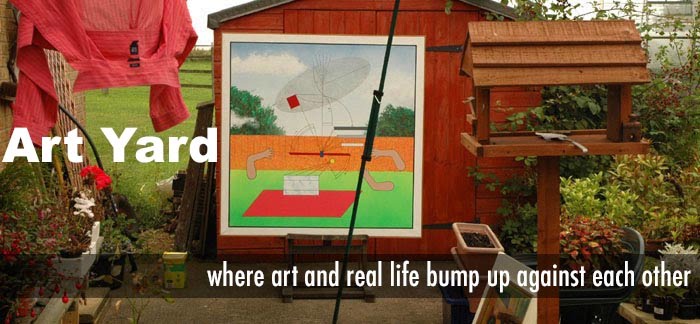 |
| Cyclical time is a fact of life for the inhabitants of Lindisfarne |
What we call the beginning is often the end
And to make an end is to make a beginning.
The end is where we start from.
TS Eliot: Four Quartets
Sometimes I think I should try to find a way of slowing down time – my
personal, internalized sense of time, not the universal time of clocks and
calendars. Of all the resources we have at our disposal, it's the one that can
seem to vanish most rapidly and is the most irreplaceable.
It's generally agreed that time passes more quickly as you grow older, a
phenomenon as real as it is alarming. A year, seen as a unit of time, once
stretched comfortably into the distance both in front of you and behind you.
Plenty of time to do so many things. Now, a year passes in what seems like a
couple of months. Summer becomes Winter and reverts to Summer again in what
seems like a few short weeks.
Two factors seem to be at work. One is the perceived duration of any
given unit of time relative to the entirety of one's lived experience. The
other is the gradual slowing down of the pace at which life is lived in
later life as energy levels diminish with age.
While the first factor is purely a matter of historical record that
can't be reconfigured, the second, because it is situated in the present and
future, may be susceptible to manipulation. I recall Jacob Bronowski, back in
the 1970's in the TV series The Ascent of Man, explaining Einstein's Theory of
Relativity. A point Bronowski made, as I remember it, was that time
appeared to travel at the speed of light — and that if you could travel at such a
speed, time would effectively stand still.
Translated into everyday practical terms,
that would seem to suggest that the more you can pack into any given unit of
time, the more time becomes stretched to accommodate it.
Lines from Quartet III: The Dry Salvages
…the future is a faded song, a Royal Rose or a lavender spray
Of wistful regret for those who are not yet here to regret,
Pressed between yellow leaves of a book that has never been opened.
And the way up is the way down, the way forward is the way back.
You cannot face it steadily, but this thing is sure,
That time is no healer: the patient is no longer here.
When the train starts, and the passengers are settled
To fruit, periodicals and business letters
(And those who saw them off have left the platform)
Their faces relax from grief into relief,
To the sleepy rhythm of a hundred hours.
Fare forward, travellers! Not escaping from the past
Into different lives, or into any future:
You are not the same people who left that station
Or who will arrive at any terminus,
While the narrowing rails slide together behind you;
And on the deck of the drumming liner
Watching the furrow that widens behind you,
You shall not think 'the past is finished'
Or 'the future is before us'.
. . .
…the future is a faded song, a Royal Rose or a lavender spray
Of wistful regret for those who are not yet here to regret,
Pressed between yellow leaves of a book that has never been opened.
And the way up is the way down, the way forward is the way back.
You cannot face it steadily, but this thing is sure,
That time is no healer: the patient is no longer here.
When the train starts, and the passengers are settled
To fruit, periodicals and business letters
(And those who saw them off have left the platform)
Their faces relax from grief into relief,
To the sleepy rhythm of a hundred hours.
Fare forward, travellers! Not escaping from the past
Into different lives, or into any future:
You are not the same people who left that station
Or who will arrive at any terminus,
While the narrowing rails slide together behind you;
And on the deck of the drumming liner
Watching the furrow that widens behind you,
You shall not think 'the past is finished'
Or 'the future is before us'.
. . .
TS Eliot : Four Quartets





